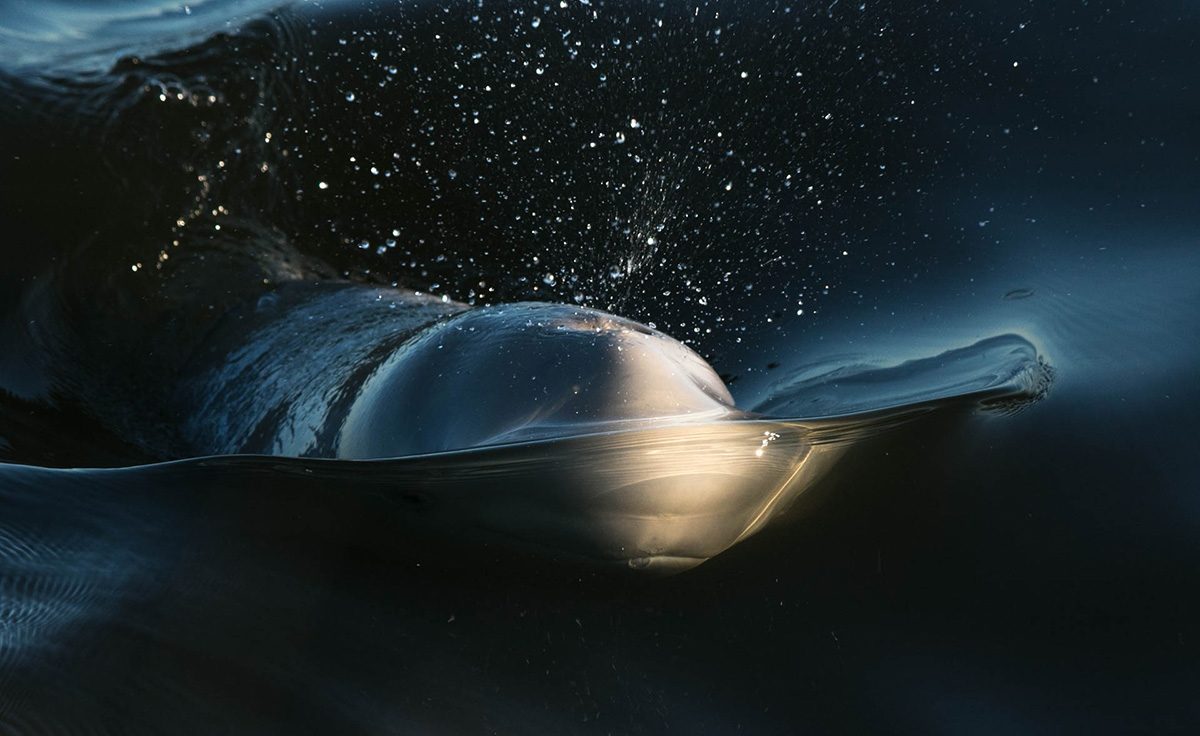
A beluga calf, exhaling thousands of tiny droplets of respiratory vapour. // Photo: Justine Hudson
Finally, a breathtaking photo of beluga whale snot
The above photo captures a beluga calf exhaling thousands of tiny droplets of respiratory vapour, which are valuable to science. The droplets—snot, essentially—help researchers like U of M’s Justine Hudson measure stress in whale and dolphin populations all over the world in a non-invasive way, enabling us to accurately measure stress and determine the cause.
This remarkable photograph was taken by Hudson, a master’s student in biological sciences. Her photo is one of 20 finalists in the Science Exposed contest, which is run by the Natural Sciences and Engineering Research Council of Canada (NSERC). The public is invited to vote for their favourite scientific image—Hudson’s image is number 18 of 20 on the website.
The Faculty of Science student studies beluga snot and you can follow her research adventures on Twitter using her hashtag #SnotForScience or follow her @justinehud.
The working title of her thesis is “Snot for science: using blow to analyze stress hormones in the western Hudson Bay beluga population.” By capturing the exhalations on a petri dish she suspends over the blowhole using a pole, she gathers information on genetics, hormone levels, and infectious disease. Prior to this method, researchers had to capture or restrain beluga whales, which is arguable a stressful event for the whale and thus biased stress hormone levels in the samples. Hudson’s non-invasive technique allows for more accurate data gathering.
One hormone of particular interest is cortisol, an indicator of stress levels. By collecting baseline samples now, while shipping around the Port of Churchill and the Arctic in general is low, conservationists will have a robust reference point to turn to when shipping increases in the future, something that is expected to happen with climate change.
Research at the University of Manitoba is partially supported by funding from the Government of Canada Research Support Fund.






